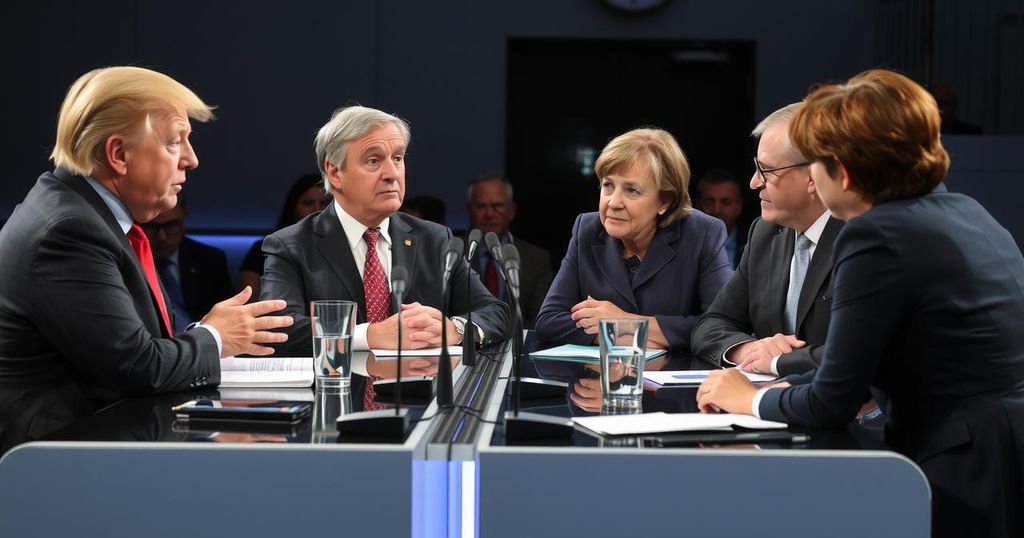Germany Faces Political Turmoil and Economic Challenges Ahead of Early Elections

Germany’s political environment is in disarray as Chancellor Olaf Scholz faces accusations of incompetence ahead of early elections on February 23. The once-respected norms of political decorum have crumbled, with rising tensions characterized by personal attacks. Economically, Germany is grappling with crises affecting the automotive sector, compounded by pressures from right-wing and left-wing movements opposing established policies. The forthcoming elections have serious implications for the stability of both German democracy and its position within Europe.
The recent Bundestag debate demonstrated that Germany’s political landscape is engulfed in turmoil as Chancellor Olaf Scholz clashed with both his ex-coalition partners and opposition leaders. Following the collapse of his coalition government, Germany is set to face early federal elections on February 23rd, which marks a departure from the usual procedural voting for confidence. In a heated exchange, personal insults overshadowed political discourse, underscoring a significant decline in the decorum of German politics. Scholz criticized the Free Democrats for their lack of “moral maturity” while being labeled a “global embarrassment” by the conservative leader, Friedrich Merz. The once-stable German democracy now confronts unprecedented strife from internal factions and external pressures, especially amid a severe economic crisis stemming from high energy prices and faltering automotive industries.
Germany is currently experiencing a crisis that is both political and economic, exacerbated by Russia’s war in Ukraine and the internal strife within the German Parliament. The upcoming elections threaten the stability of the nation as right-wing and left-wing factions gain traction, advocating for stances that challenge support for NATO and Ukraine. The political climate is further strained by the significant economic challenges ahead, including rising energy costs and potential layoffs in leading sectors such as automotive manufacturing. Germany’s political future is uncertain as parties grapple with the need for collaboration in response to these issues, while the country may potentially face a government void during a crucial transatlantic relationship period.
In summary, Germany’s political landscape is precariously poised ahead of the early federal elections, emphasizing the need for unity among parties amidst internal discord and significant external pressures. The economic crisis and impending shifts in global politics, particularly concerning the potential reinstatement of Donald Trump, exacerbate Germany’s challenges as it faces leadership vacuums. It is imperative for the political factions to set aside personal vendettas and work collaboratively for the country’s stability and democratic integrity, as the results of the imminent elections will undoubtedly impact Germany’s future direction.
Original Source: www.theguardian.com






